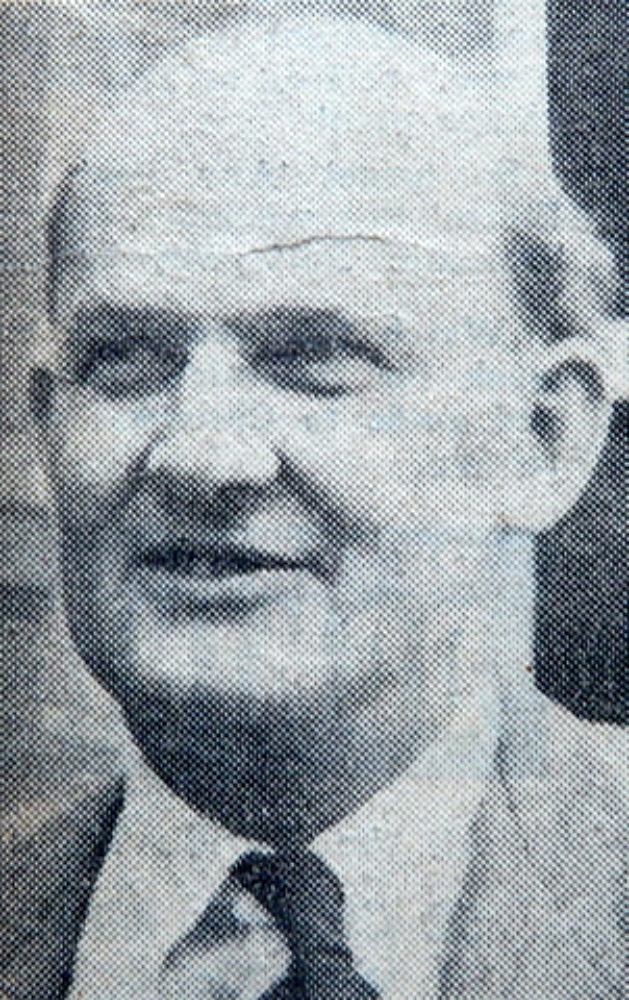On Red Alert – Andreiandreivitch Kerby MP
EVEN if you’ve lived in this part of Sussex for the last 60 years you have probably never heard of Andreiandreivitch Kerby. Yet his picture appeared many times in the local papers, his name was always being mentioned in local political circles and his was a very familiar face when it came to opening local summer fetes.

So who was this Russian-sounding chap? A local piano teacher with Russian origins? Perhaps even a Cold War spy? Not exactly, but you’re getting warm……
CAPTAIN Kerby was, in fact, the Member of Parliament for Arundel and Shoreham and a man with rather mysterious Russian connections.
After switching from the liberal side of politics, he successfully fought, as the official Tory candidate in the 1954 Arundel and Shoreham Parliamentary by-election and in the following 17 years became one of the most vociferous campaigners in Parliament against Britain switching to metrication.
I recall him describing it in Parliament in 1970 as, “This metric madness, this alien and academic nonsense, introduced secretly through the back door by a bunch of cranks and the big business tycoons…and put into clandestine operation…”
What fascinated and mystified his constituents even more was that during the Cold War, when Moscow was considered a giant threat to the West, Henry Kerby got on so well with the Russians. Of course, it helped that he was one of the few British MP’s able to speak their language fluently.
He was so good at it that when Mr Kosygin, the Russian premier, made an official visit to Britain, Henry Kerby was one of the first people to officially greet him. And when an 18-man Russian parliamentary delegation visited this country the same year, Henry Kerby was their official interpreter, not the only time he played such an influential role. He was also parliamentary interpreter to two other top Russian leaders, Mr Krushev and Marshal Bulganin, accompanying them on many of their official duties.
This may come as a surprise to those who remember the extremely frosty relations that existed between East and West during the Cold War and when considering them with hindsight alongside Captain Kerby’s World War Two experiences as a member of Special Air Services – the elite commando-style unit we came to know better as the SAS.
Today we are well aware that the SAS was involved in many covert operations during and after WW2. Rumours about Captain Kerby also having close associations with MI5 were rife during the 1960s, though, not surprisingly, he would never be quoted on the subject.
His frequent mixing with the Russian hierarchy led to private speculation that Captain Kerby was a British spy though, naturally, this has never been verified. He constantly made public references to his conversations being “bugged” while in Russia (and even while flying on Russian planes) but this could have been part of a shrewd double bluff.
Just how close his Moscow connections were became evident to me when Captain Kerby told me at his home in Angmering, three years before it was officially revealed by the British authorities, that the escaped British traitors, Guy Burgess and Donald Maclean, were living and working for the Russians in Moscow.
What does still puzzle many of his former Parliamentary constituents is that Russian name. I can now reveal all. It was bequeathed to him by one of the top Russians, either Kosygin or Kruschev.
It was during the time he acted for them as an interpreter that the difficulty with Henry Kerby’s name became evident. The Russians like to call people by their first names but have no equivalent for “Henry” in their language.
Andreiandreivitch was the name chosen – and Andreiandrevitch he became to them from then on….
Another thing most of Henry Kerby’s friends and voters didn’t know was that his full REAL name –was Henry Briton Kerby. What might the Russians have made of that?